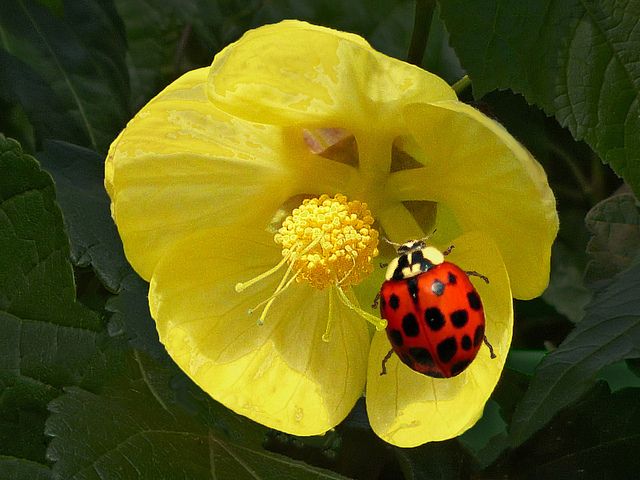
In the Garden :: Beneficial Garden Helpers
Many factors contribute to a healthy and successful garden. Beyond soil amendments, water retention and adequate sunlight exposure, the garden also needs pest control. Historically, through the use of pesticides, many gardens were kept from the destruction pests unleashed; however, today’s modern gardener may prefer a more natural approach.
Beneficial Garden Helpers:
The use of beneficial garden helpers to control and eradicate pestilence such as aphids, beetles and hornworms has become extremely popular in the past decade. Nematodes, praying mantis and ladybugs are great additions (and hard workers) to the organic garden or gardens where pests have become resistant to pesticides.
Beneficial nematodes are microscopic non-segmented roundworms which live in the garden’s soil. While naturally occurring world-wide, the use of a beneficial nematode can prevent spider mites, flea larvae, weevils, grubs, rootworm and cutworms. These organisms have been known to attack above ground pests, as well. The most commonly used beneficial nematodes are Steinernema carpocapsae, S. feltiae, S. glaseri, Heterorhabditisheliothidis and H bacteriophora. Nematodes can kill their hosts within 48 hours and safely eradicate entire pest populations.
Please note, not all nematodes are beneficial. In fact, there are many species which cause serious diseases in humans and animals worldwide. When purchasing nematodes for your garden, use only those considered beneficial and purchasable from a garden supply store or a trusted online vendor.
Ladybugs are wonderful garden helpers!
In addition to nematodes, ladybugs are excellent garden helpers. Considered voracious predators, most ladybugs dine on aphids, spider mites, white flies and other prolific pests. They occasionally find fungus and mildew appetizing. Even in larval form, the ladybug will feed on aphids. Ladybugs can be purchased in the larval and adult stages from garden centers or online.
The Praying Mantis:
A different kind of garden predator, the praying mantis will devour any insect pest in the garden. However, mantis have been known to dine on beneficial insects as well as each other should the pest population decline. Programmed to eat, mantis will devour beetles, moths, caterpillars, butterflies, flies and more. Like the ladybug, mantis egg cases can be purchased from garden suppliers.
Beneficial garden helpers are an environmentally friendly solution to a garden’s pestilence problem. They are easily obtained and applied in the garden. They work quickly and silently above and below the soil providing the necessarily relief to plants. They even provide the gardener a sense of well-being knowing the garden is being patrolled night and day.
Do you employ some insect garden helpers?
Photo courtesy of Flickr: https://www.flickr.com/photos/michelt/4932027700/sizes/z/in/photolist-8vPW1m-9PUgoj-c57Z3U-a1YzQ8-cmFPcS-bpU5xE-deV337-aL8jmT-ahDwf2-cFMKHw-8k2GcQ-9FhS5o-9j16nL-8NNhvF-9TKaMC-beYBPz-dftGr6-bBCbRZ-aYpMRP-cmJSbd-bSdzCr-a2tBDM-bNARKV/
Photo (top) courtesy of Flickr: https://www.flickr.com/photos/libelluleco/8899953797/sizes/z/in/photolist-eysAcg-dYjqCc-8fknd1-9DCPeE-7KpBqn-7KpBjr-cgeF9j-7Z7SUm-7EfW2v-drZzdc-apdjBr-89YETT-7yPnEs-7Tzm8x-e9uAsd-9xgYuu-ejnfmQ-bBdZf4-dq2P8i-anHn5x-anL9MU-8fknTN-8fknwE-bGTemp-7HRhSp-d8ZKqs-8Q7FAa-bBh8Ah-apw3j2-8h7s6X/
0




